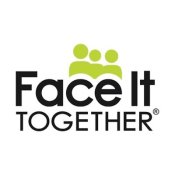A team from the Community Practice Innovation Center at South Dakota State University has been awarded a $3 million grant to expand and facilitate services for individuals transitioning out of South Dakota prison systems.
The grant, which comes from the Health Resources and Services Administration, will continue the START-SD (Stigma, Treatment, Avoidance and Recovery in Time) work on prevention, treatment and recovery for substance use disorder in South Dakota.
The four-year program, titled START-SD-Impact, will increase access to treatment services for substance use disorder, establish peer coaching services, expand reentry programming and provide post-reentry support.
Project purpose

Project directors Erin Miller and Patricia Ahmed said that through this work, they hope to “decrease rates of post-release overdose, decrease rates of recidivism, and provide justice-involved individuals who have substance use disorder with the resources they need to successfully reenter their communities and recover from substance use disorder.”
Substance use disorder is a growing problem in South Dakota and especially among justice-impacted individuals. In 2023, 96% of female inmates and 98% of male inmates in South Dakota were diagnosed with a substance use disorder at intake.
“This is a huge area of need,” Miller explained. “The South Dakota Department of Corrections has been making a lot of progress, and by partnering with them on this grant, we hope to amplify that progress by bringing in resources and expertise to increase the impact of this work and move things forward faster.”
Providing treatment, recovery, reentry services

The START-SD-Impact work will focus primarily in Hughes, Bon Homme, Yankton and Codington counties, focusing on individuals transitioning out of the South Dakota Women’s Prison, the Mike Durfee State Prison and the Yankton Minimum Unit.
As a result of this project, those currently incarcerated will have increased access to treatment for substance use disorder, which includes medication assisted treatment, counseling and behavioral therapy.
Additionally, those currently or previously incarcerated will have increased access to peer coaching services for substance use disorder.
Reentry programming will also increase, allowing more services to be available. Evidence-based reentry programming includes services which help incarcerated individual prepare for release and are shown to decrease likelihood of recidivism.
The START-SD team expects this work to have a positive impact, both short and long term.
“By providing supportive resources for treatment and long-term recovery among inmates, we expect to see a decline in recidivism rates and concomitant decrease in crime and incarceration rates,” Ahmed said.
Supporting loved ones, developing workforce
In addition to providing services to those currently or recently incarcerated, START-SD-Impact will increase availability and access to coaching and peer-coaching services for family or loved ones.
The program will also complete work to increase community engagement and decrease stigma surrounding substance use disorder and reentry.

To ensure the current and continued success of program efforts, START-SD-Impact will include programs to develop the workforce. These include providing seminars for correctional officers, medical/behavioral health professionals and social service providers to provide training, increase support for treatment and recovery programming and reduce stigma.
Partnerships
In addition to the Department of Corrections, the Community Practice Innovation Center and the START-SD team will partner with three organizations on project efforts.
Face It TOGETHER, an addiction wellness nonprofit, will provide peer coaching and loved ones support coaching services.

St. Dysmas of South Dakota, which is already providing evidence-based reentry education and services designed to assist individuals who are being released from incarceration, will continue and increase its reentry programming through START-SD-Impact.

And Brothers and Sisters Behind Bars, a Watertown-based organization, works closely with problem-solving court participants and other justice-impacted individuals, and will play a key role in providing post-reentry services.
“These folks are the experts,” Miller explained. “SDSU provides the structure to facilitate the work, but the experts are the ones making the impact through their expertise.”
The importance of START-SD-Impact work
Ahmed explained why this work is so important. “These efforts are very important because substance use is highly correlated with first-time offending and recidivism rates. This work will address issues of substance use disorder in South Dakota correctional facilities. It also helps connect inmates to a variety of support services during incarceration and post-release, including peer-recovery and educational resources.”
START-SD-Impact is the latest chapter in the grants-funded START-SD work to increase access to and effectiveness of prevention, treatment and recovery services for substance use disorders in South Dakota.
The work has been ongoing since 2019. Previous START-SD efforts led by Miller and Ahmed have included projects to address prevalence of opioid use disorder, psychostimulant use disorder and drug overdose.
START-SD projects, including START-SD-Impact, are housed within the Community Practice Innovation Center at South Dakota State University. Both the Community Practice Innovation Center and the START-SD program are led by Miller, who is based out of the new SDSU Metro Center in Sioux Falls.
Learn more about the START-SD work, including START-SD-Impact.
- Contact:
- Telephone number: 605-670-9658
Republishing
You may republish SDSU News Center articles for free, online or in print. Questions? Contact us at sdsu.news@sdstate.edu or 605-688-6161.

